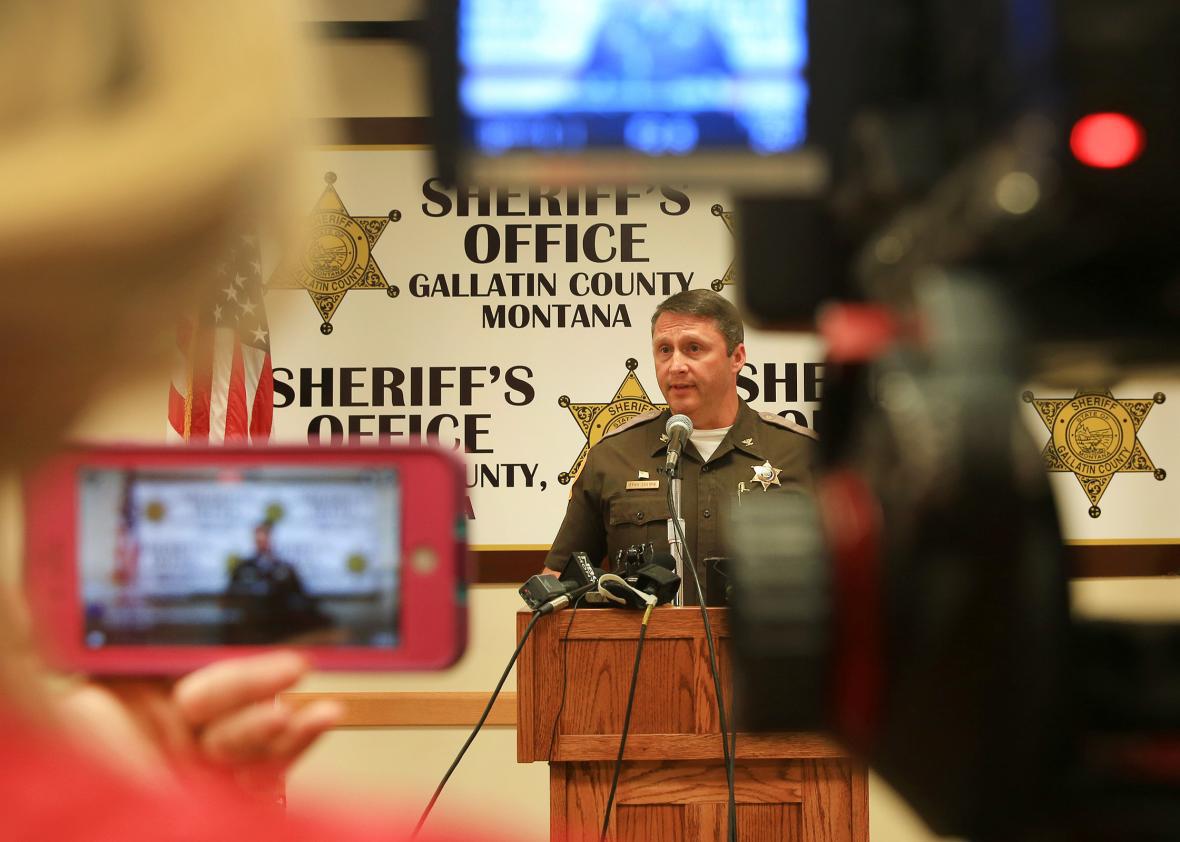Maybe journalists should start wearing body cameras. Or maybe politicians should be required to wear them.
I’m kind of, sort of joking. Or maybe not.
Wednesday’s roughing up of a Guardian reporter by a Montana congressional candidate (Republican, of course) might have ended up as a battle of allegations. The candidate and his staff issued a statement blaming the “liberal journalist” and his “aggressive behavior,” but those claims were flatly contradicted—by eyewitnesses, from Fox News of all places, but most importantly by audio tape. Given that evidence, the local sheriff charged Greg Gianforte, a former technology executive, with assault (albeit only misdemeanor).
But let’s face it. Video would have been even better.
This logic parallels some of the reasoning people apply in other situations. In one way it’s like recent calls for police officers to wear body cameras that capture their interactions with the public, for the protection of both. But that’s not quite the right analogy, because in many ways cop cameras are seen in some communities as more about protecting civilians from abuse than police from false accusations; done right, of course, police body cameras protect both sides.
It’s also like the way that motorists in some countries, such as Russia, use dashboard cameras to create a video record of their driving, to help avoid insurance scams and lawsuits. (The world got a bonus from this practice when a dashboard camera captured a meteor searing through the atmosphere over the Ural Mountains in 2013.) This may be a closer analogy because it’s almost entirely about protecting the person doing the recording.
Donald Trump’s personal attacks on journalism, at least reporting that doesn’t praise him and pound his growing opposition, have so far been rhetorical, not physical (though he’s filed a number of libel suits over the years). But his supporters are upping the ante, with threats and arrests. Earlier this month, a journalist in West Virginia was arrested after “yelling” questions at Health and Human Services Secretary Tom Price. “[O]fficials say he was ‘trying aggressively’ to breach Secret Service security,” NPR reported. About a week ago, a CQ Roll Call reporter says he was “pinned” against a wall by security guards while trying to ask a Federal Ccommunications Commission commissioner a question.
Now, in Gianforte’s “body slam” of Ben Jacobs, we have an actual pounding.
As American journalists slowly wake up to the uncomfortable reality that war has been declared on the honest members of the craft, they need to fight back—not against Trump and his acolytes but for freedom of the press and freedom of expression in general. In the process, they need to start taking self-defense a bit more seriously.
If I was a journalist heading into territory where many of the people in the room considered me the enemy, I’d take precautions. One of them might well be a body camera.
Every reporter carries a camera at all times in any case: the one in his or her phone. As electronic gear gets more powerful and shrinks in size, it’ll be trivial to have a body camera, or several, in one’s clothes. Knowing that journalists were wearing body cameras would surely deter some attackers. Not all, of course: Certain folks may well decide it’s fine to assault journalists and take their chances on friendly local law enforcement or a hung jury in Trump-territory courts.
Of course, Trump might have one reason to favor body cameras on reporters. It would make life harder for anonymous sources. But not even this Constitutionally challenged president could entertain a law requiring such a thing.
While bodycams might be protective for journos, suggesting this kind of thing makes me uncomfortable. The more cameras we encounter in our daily lives, the more we’re being spied on, by governments, corporations, friends, and others. Technology is the modern double-edged sword, and a surveillance society feels like a cost not worth the benefit. We need to have norms and laws aimed in this case at boosting public knowledge—but not helping to create a Panopticon in the process.
So maybe the answer isn’t for reporters to wear cameras after all. Maybe, more like the police-worn body cameras, we should require politicians to wear cameras and microphones whenever they’re campaigning or involved in political activities of any kind. (Again, kind of, sort of joking … )
After all, they’re doing the public’s business. We should know what they’re up to, right? Deterring a politician with violent tendencies from slamming a reporter is fine, but deterring a politician from making sleazy deals with colleagues, lobbyists, and campaign funders sounds even finer.
